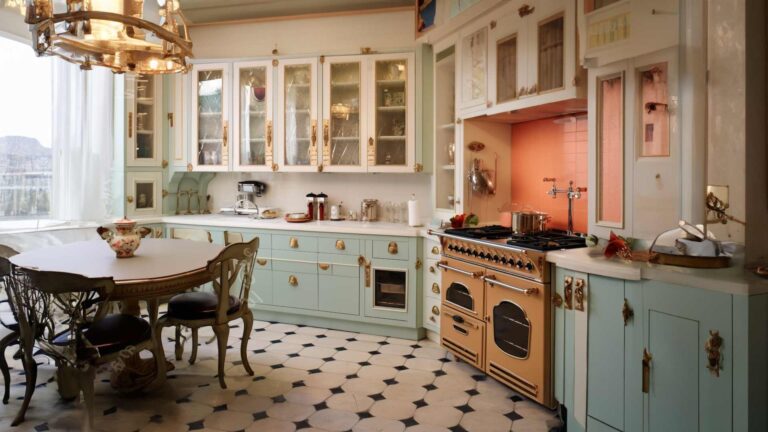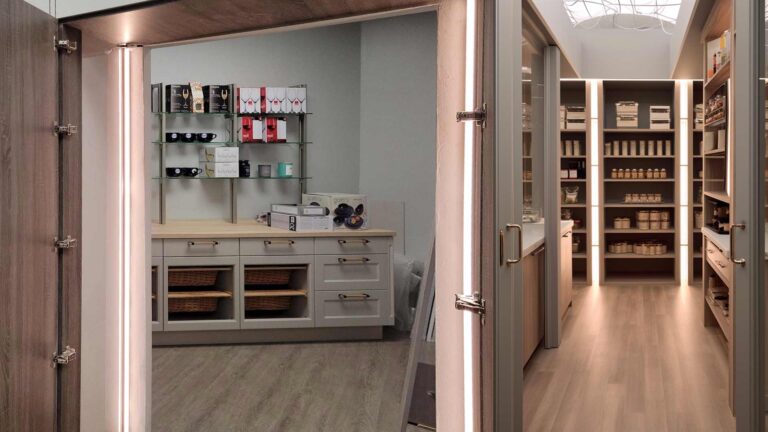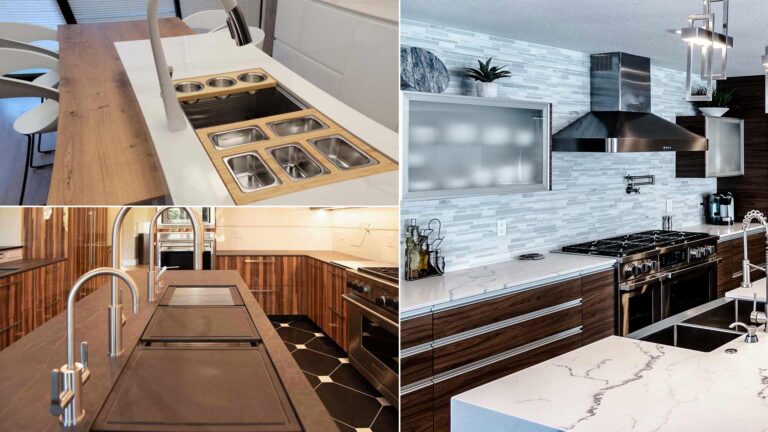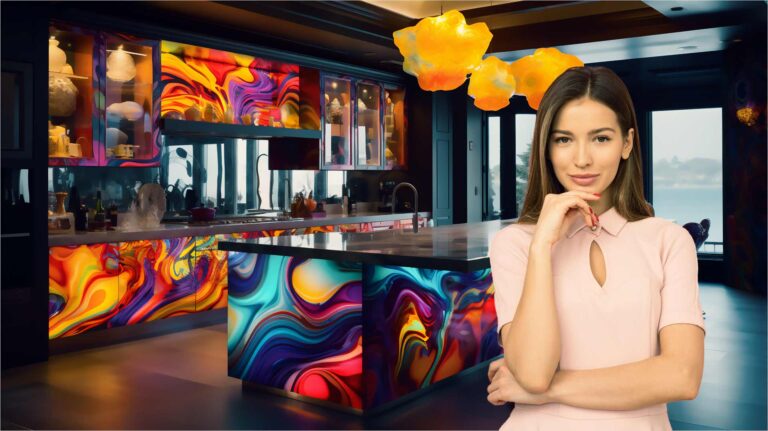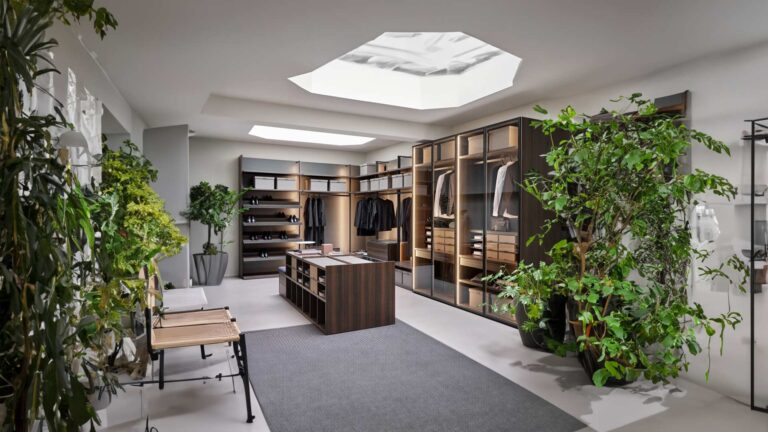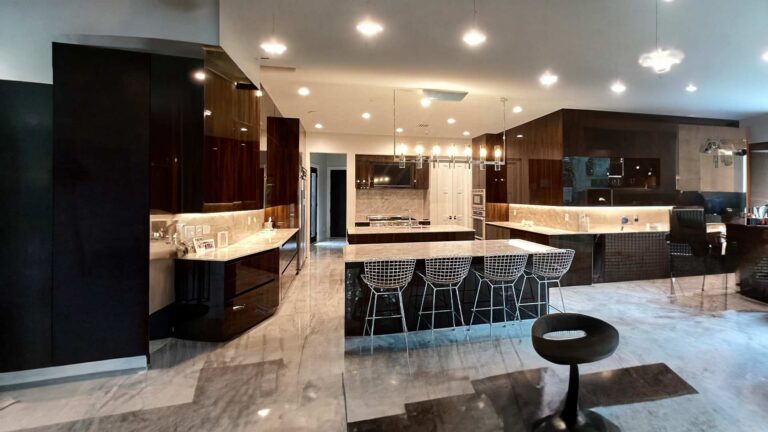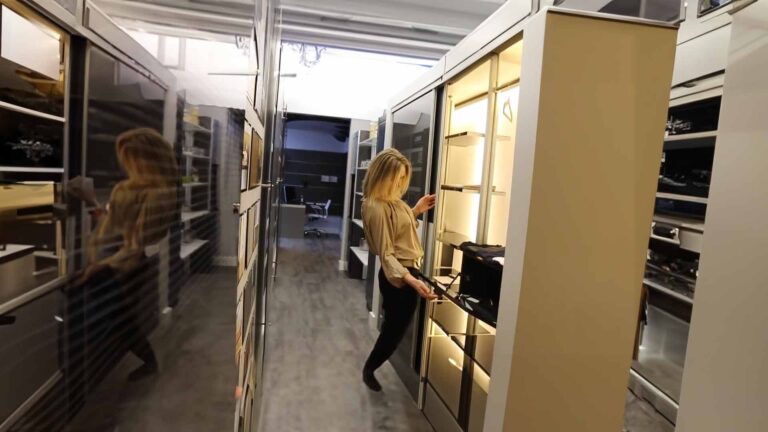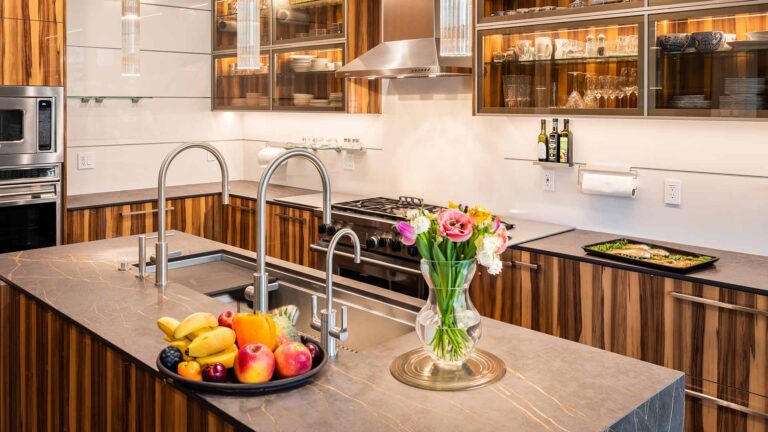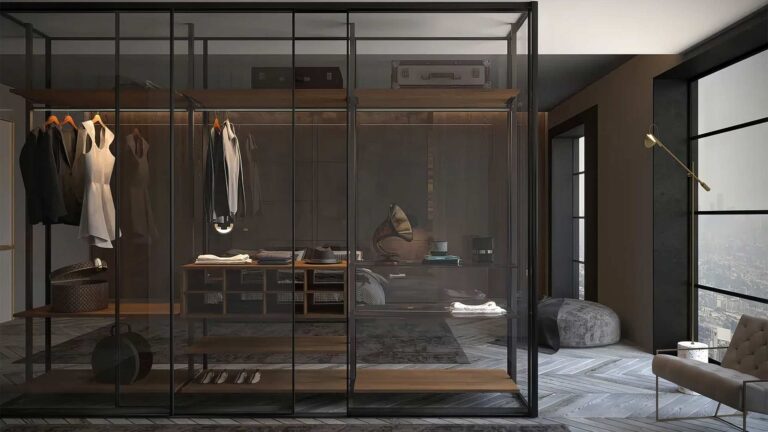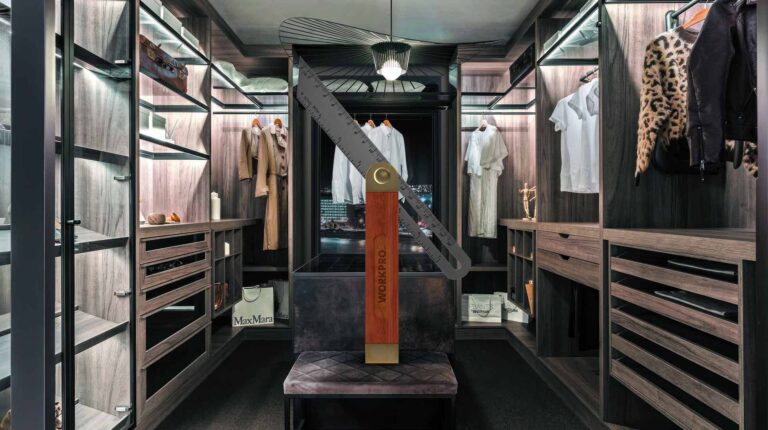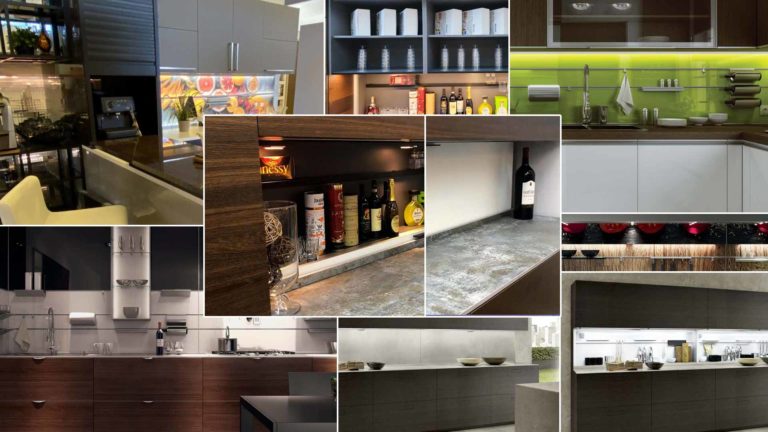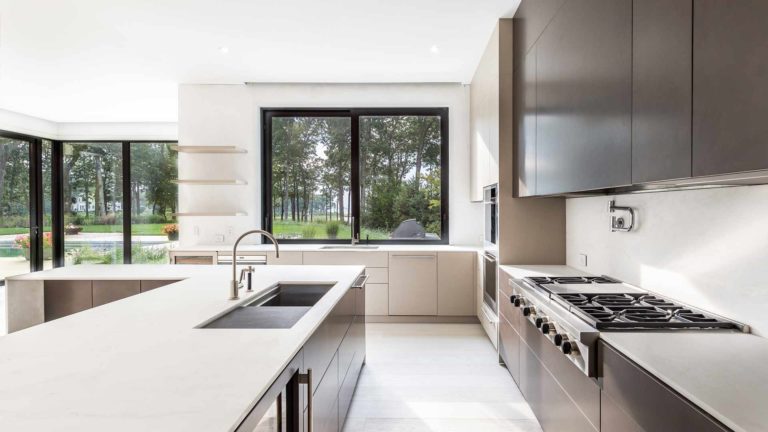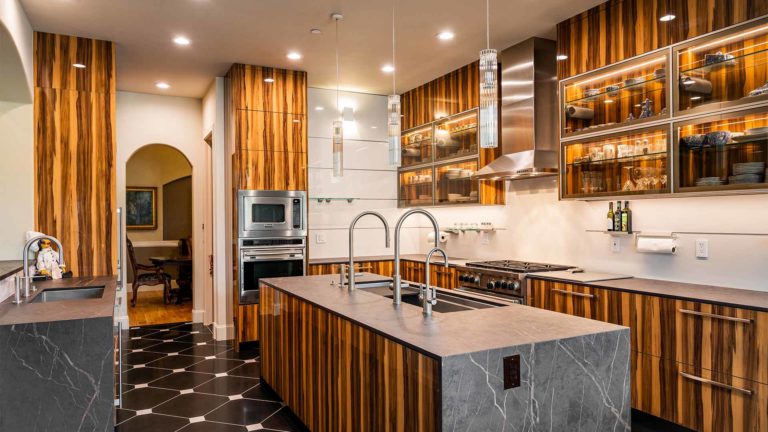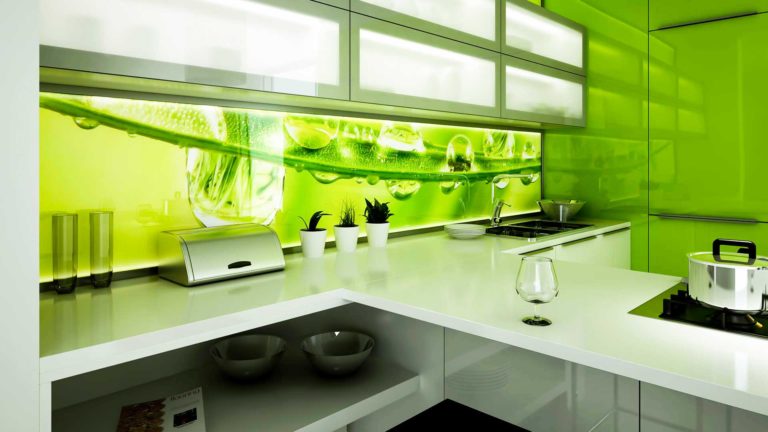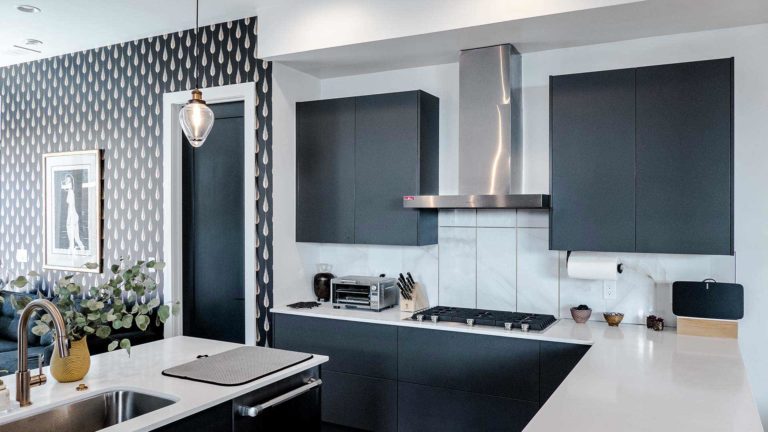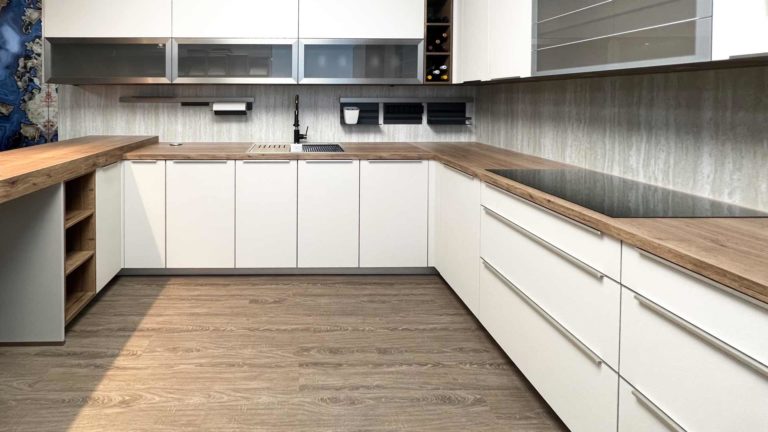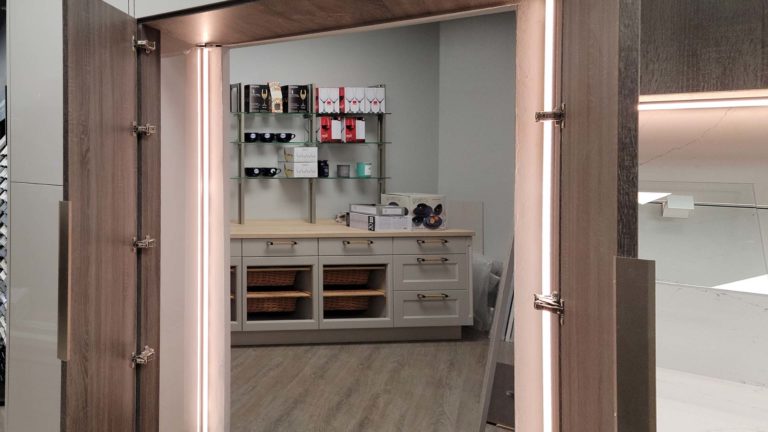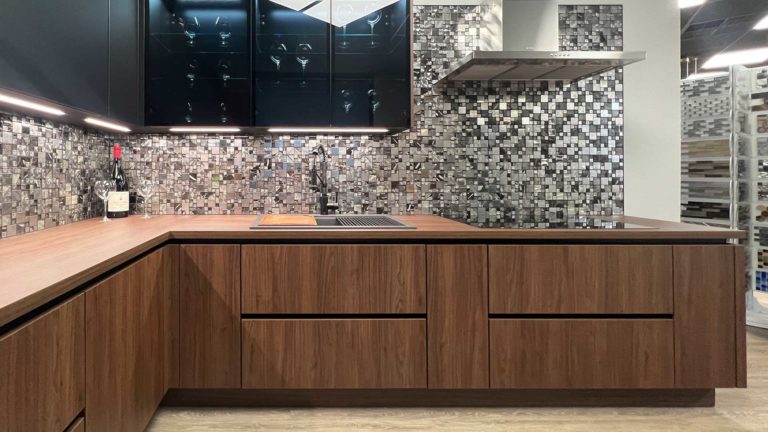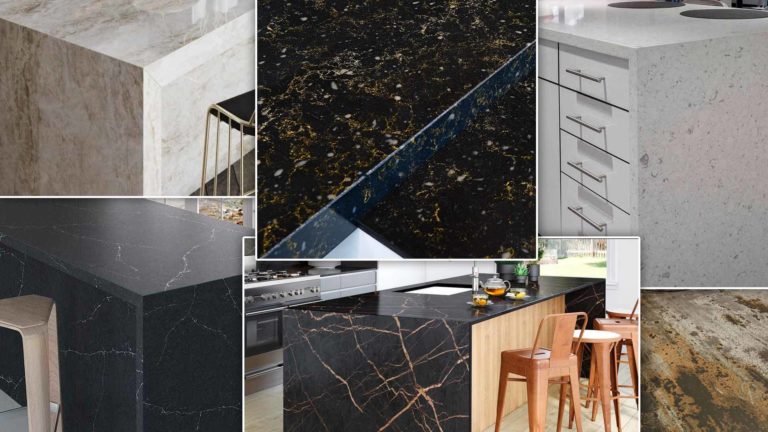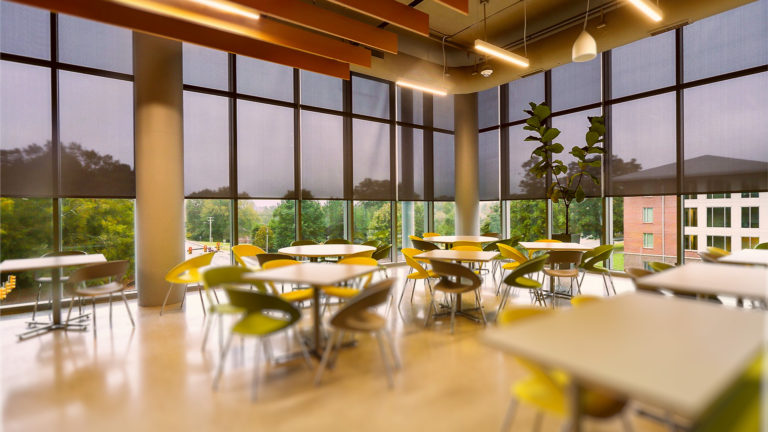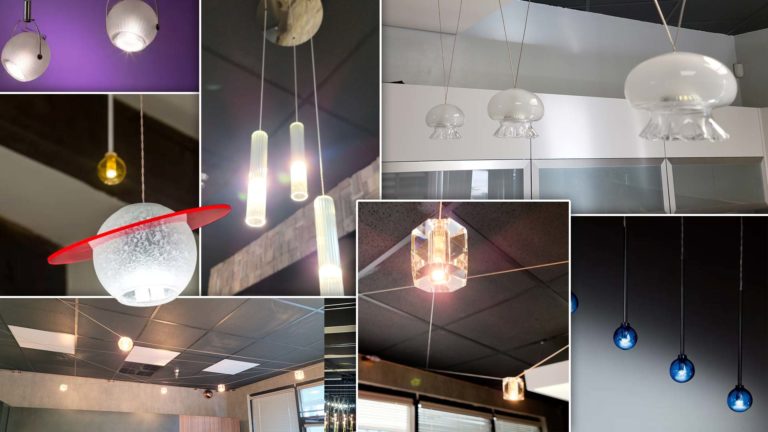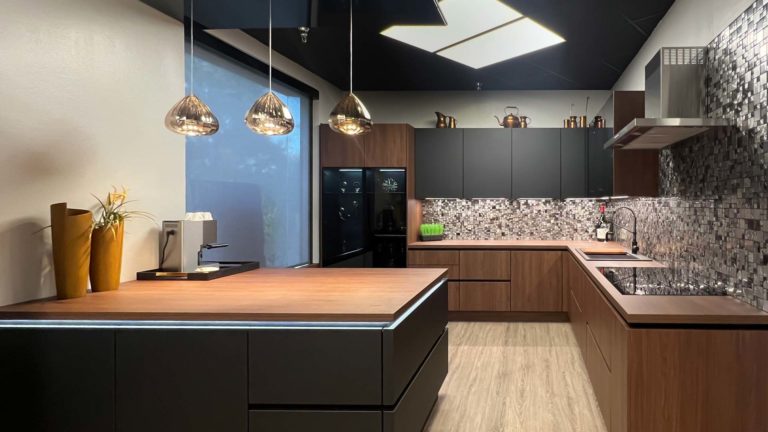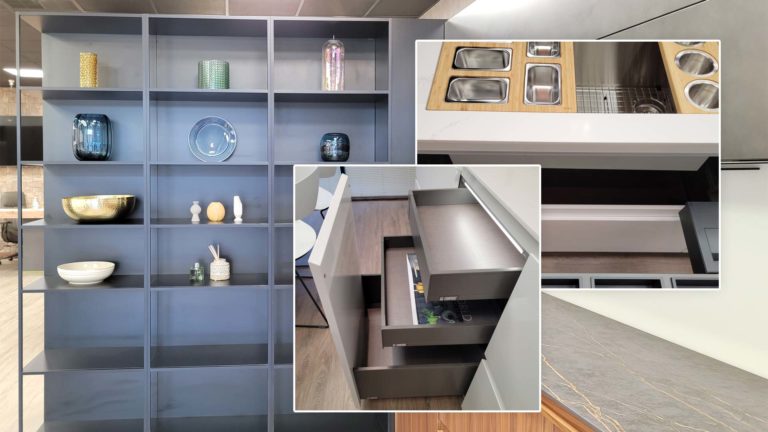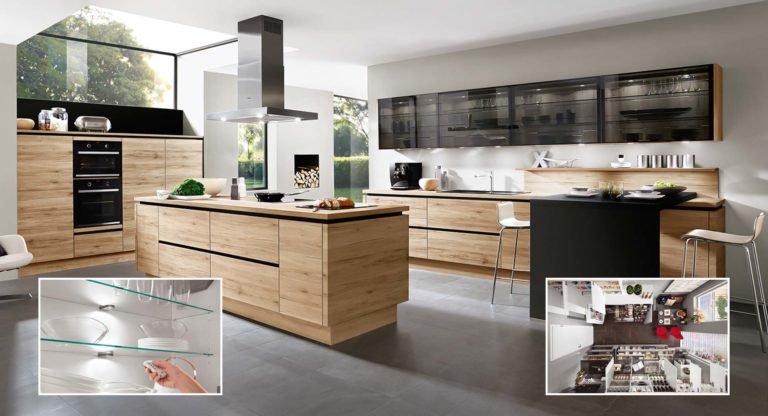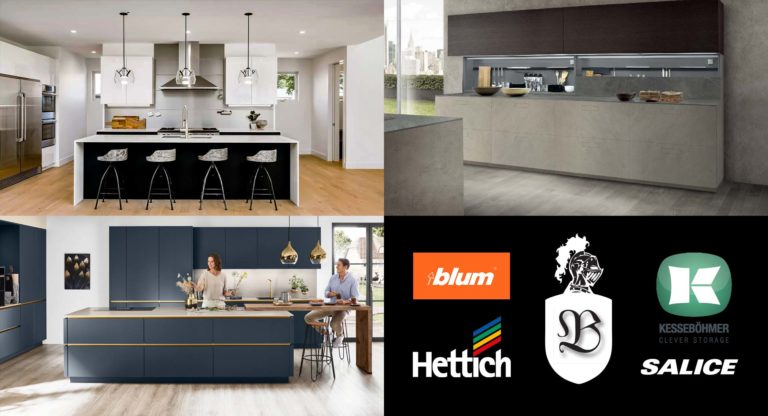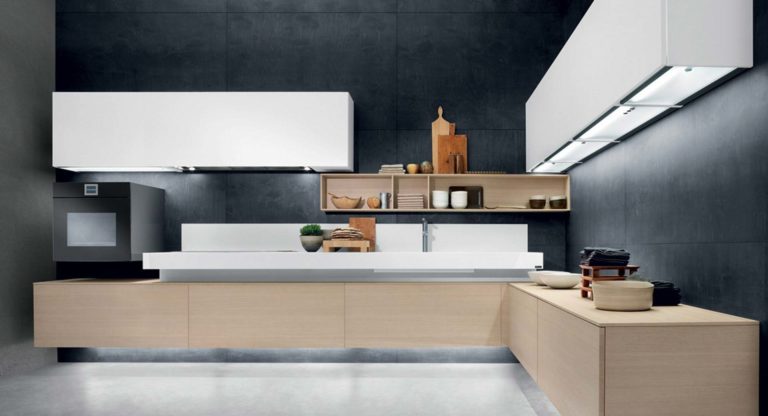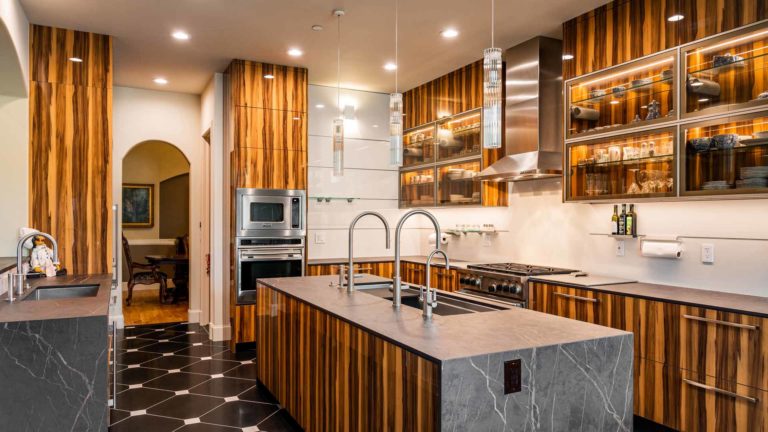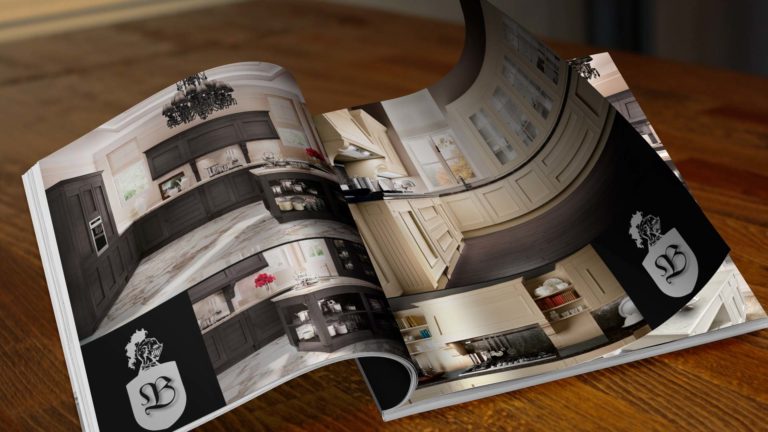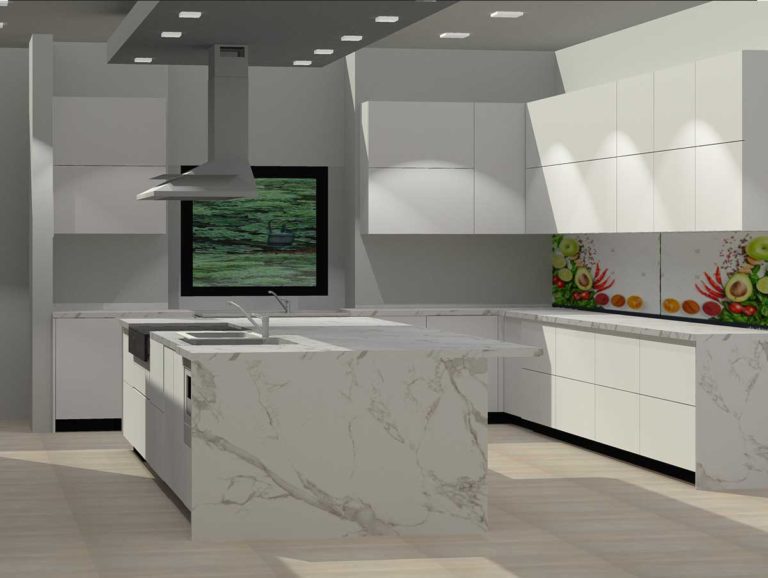The following guide is designed to provide you with information on Dekton countertops so you can decide whether they are suitable for your home.
Dekton was a newcomer in the countertop industry and was introduced in 2013 and is already making an enormous impact within the interior and exterior renovation industries.
It is incredibly dense and versatile in use both outside and inside. Dekton is also a durable wall-facing countertop that can easily be installed in your kitchen or bathroom with a low-maintenance design. This article analyzes and explains Dektoon and its benefits and disadvantages.
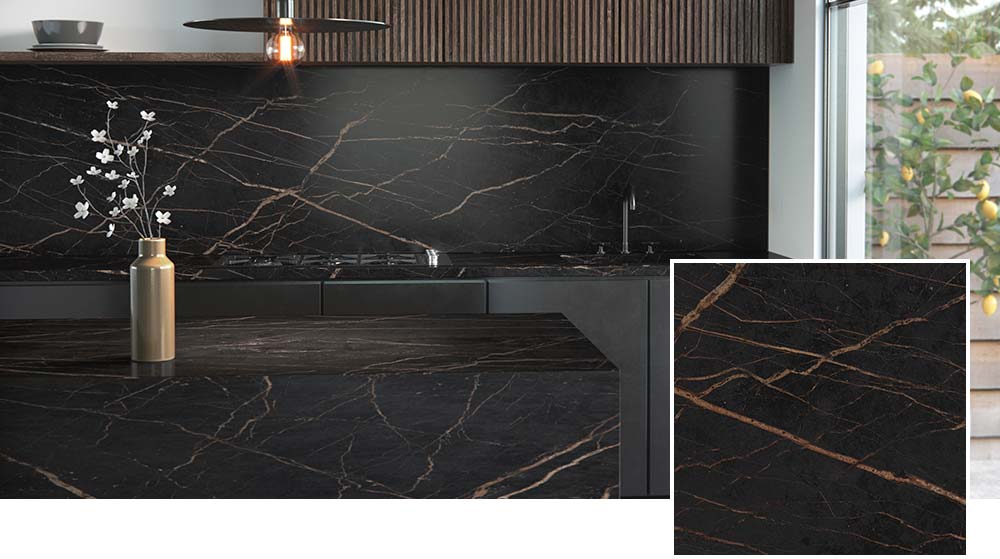
How is Dekton Created?
A sophisticated blend of raw materials such as quartz, glass, and porcelain, Dekton is an ultra-compact surface. It is made using the latest manufacturing and raw materials technology. Its ultra-compact feature sets Dekton kitchen countertops apart from all other countertop materials.
Dekton is produced by mixing the raw materials at a very high temperature until they fuse together. Then, they are cooled rapidly, which gives Dekton its ultra-compact structure. After that, it is cut into slab sizes used for countertops, floors, walls, and other surfaces.
Because Dekton is exposed to high temperatures when it is being made, it is resistant to high temperatures once it has cooled. You can put hot plates directly on your Dekton countertops without damaging the surface. Creating Dekton kitchen countertops is an energy-intensive process, but the result is a beautiful, strong countertop that will last for many years.
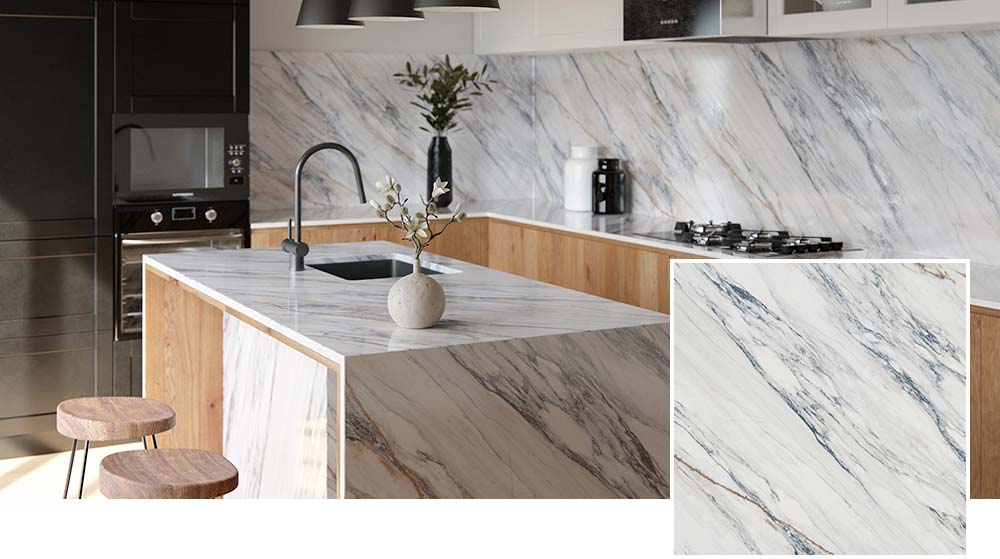
How Expensive are Dekton Kitchen Countertops?
Because the Dekton countertop is an exceptionally durable, high-grade material, it is often an extremely low-budget choice.
Dekton is available in sizes ranging from $60-$120 per square foot. A laminate countertop is costlier and more durable. The standard cost of custom laminate flooring ranges between 24 and 36 US cents/per square foot.
Most buyers expect Dekton to surpass popular kitchen countertop materials such as marble and granite quartz.
The average quartz price per square foot is approximately $55-195. On average, marble countertops cost $50-100 per square ft.
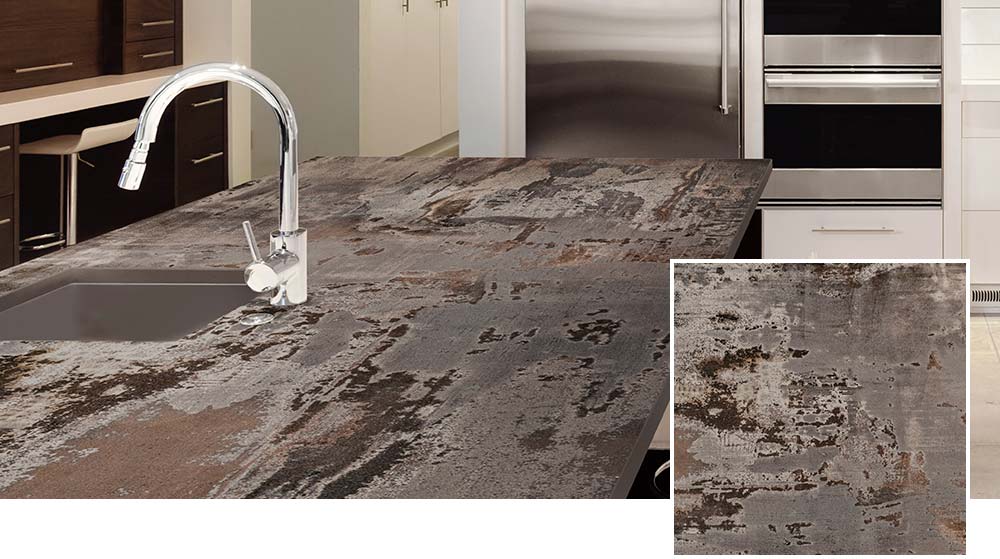
Are Dekton Countertops Better than Quartz?
Dekton is a quartz-like countertop that raises the bar on durability.
Made from raw materials that are found in glass, tile, porcelain, and Quartz pressed together to create what is called Dekton.
The process combines three industry technologies that result in sinterized particle technology.
How do Dekton and Quartz countertops react to different elements?
Dekton countertop surfaces are highly durable, UV light resistant, and can withstand high temperatures. Dekton kitchen counters and Quartz are easy to clean and stain-resistant. Additionally, their surface is non-porous, meaning that nothing can penetrate it or change its color.
One main difference is the scratch resistance; Dekton surfaces are four times more scratch resistant than quartz.
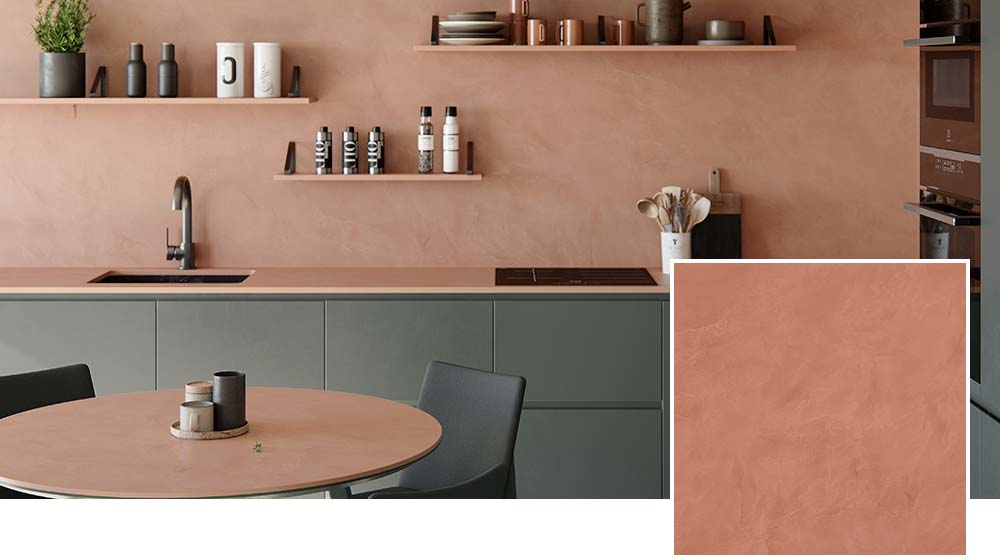
When it comes to heat resistance, the Dekton surface can withstand up to 300 degrees Celsius while Quartz can only handle up to 150 degrees Celsius.
Quartz requires that you always insulate hot pots and pans from the countertop.
What are the different Dekton Colors?
Dekton offers an array of colors, shades, and hues that will surely fit your taste and style.
Aside from the classic white kitchen countertop, you can also opt for a black, grey, or brown countertop.
You can also find Dekton countertops in shades of blue, green, and red.
The benefits of Dekton are that because they can manufacture an entire slab, the pattern and design are consistent throughout.
The colors overall lean towards earthy and metallic. The range includes solid colors and a grainy or washed pattern. Many Dekton countertops have a veining design that looks like white marble.
The color is diffused throughout the entire slab, but not the pattern or texture.
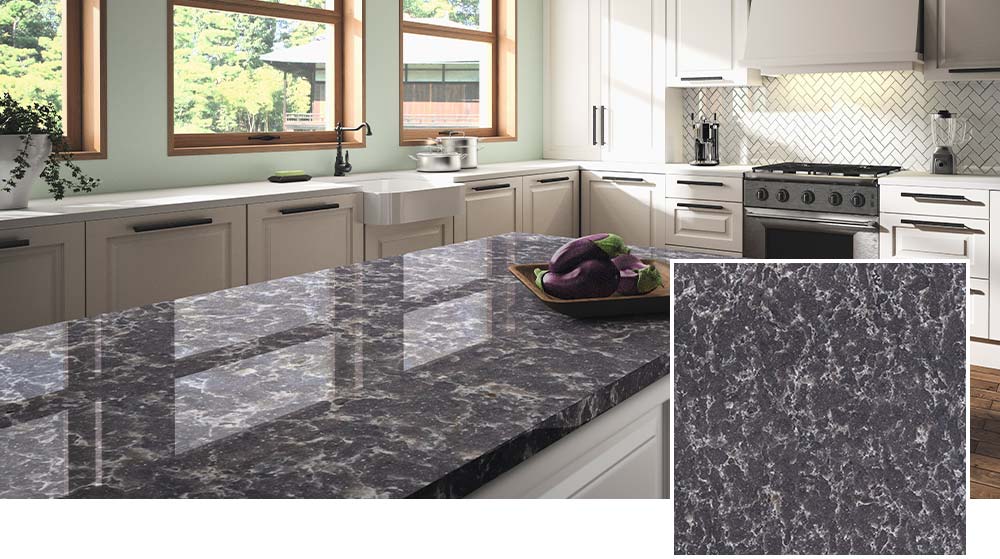
Natural Stone Vs. Dekton
Dekton is as durable as genuine stone but is more resistant to scratches, heat, and UV light. Dekton is also a non-porous material, meaning it will not absorb liquids or stain as quickly as natural stone.
Stone countertops such as granite require maintenance, such as a sealant, and making sure to use trivets to prevent hot surfaces from damaging the counter.
Although Dekton is incredibly durable and versatile, there are a few disadvantages that you should be aware of before deciding if it is the suitable countertop material for you.
The main advantage of natural stone over Dekton is the price; natural stone countertops are usually less expensive than their Dekton counterparts.
Is Dekton Really Durable?
Dekton countertops are mentioned in our review for strength and durability in the “pro” segment of the Guide. It is not overstated. A Dekton countertop can easily withstand some abuse.
When viewed in comparison to other materials such as granite and Quartz, known for their durability, versus Corian, Dekton generally has the advantage of a higher-end product line.
The heat-resistant factor is something that customers should consider when making a countertop decision. Dekton counters are so durable that you don’t even need a cutting board; you can chop your vegetables on the countertop surface!
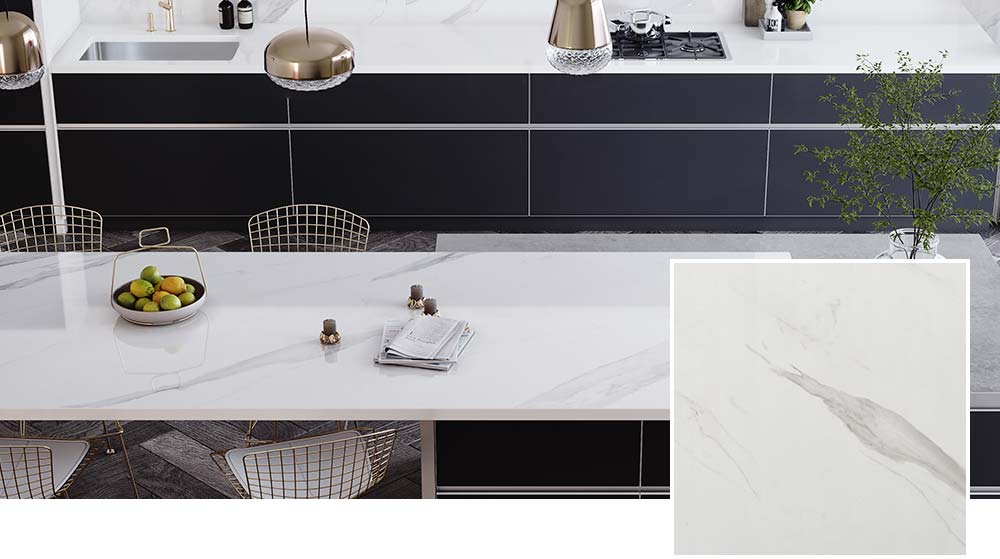
Who Can Install a Dekton Countertop
Dekton countertops must be professionally installed by a kitchen remodeler such as Baczewski Luxury. Retailers primarily sell Dekton kitchen countertops so that you won’t find them in a home improvement store.
Installing Dekton is not a DIY project, so there’s no room to save money here. Dekton is much thinner and lighter than granite and can be produced in large format slabs, making it a delicate material to work with.
What you didn’t know about Quartz countertops
Quartz countertops aren’t solid Quartz. Ten percent of Quartz countertops are made from a polymeric or cement-based binder. Natural stone undergoes a polishing process to achieve its glossy polished look.
Quartz is more durable than granite; however, it can still crack from heavy blows or heat exposure. Quartz countertops are constructed of resin, which is used to bind crushed stone together. The resin gives the countertop its flexibility and makes it challenging to fracture or chip.
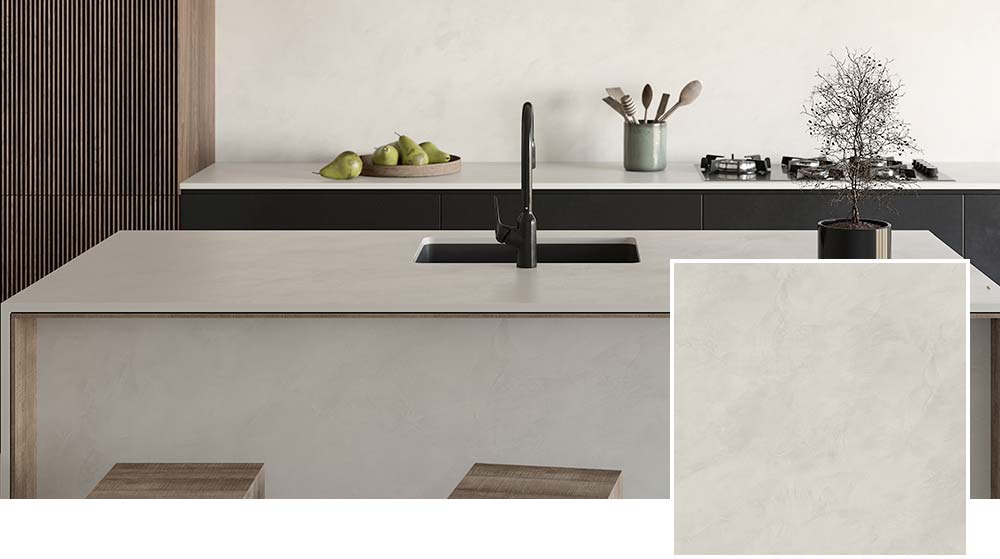
Can you use Dekton for outdoors?
Another excellent use for Dekton countertops is outdoor kitchens. Because Dekton’s countertop surface is so durable, it can withstand being outdoors and the elements without damage.
Dekton is an excellent choice for an outdoor kitchen because of its exterior applications. It doesn’t need to be sealed like Quartz or granite, and it’s less likely to stain from spills.
Dekton is a great choice for an outdoor kitchen countertop with its UV resistance and virtually impervious surface.
How to care for a Dekton Countertop?
Dekton countertops don’t require any special care or maintenance. Cream detergents combined with abrasive particles can be used to clean any Dekton surfaces.
Because of its non-porous surface, Dekton countertops are resistant to staining and do not need to be sealed.
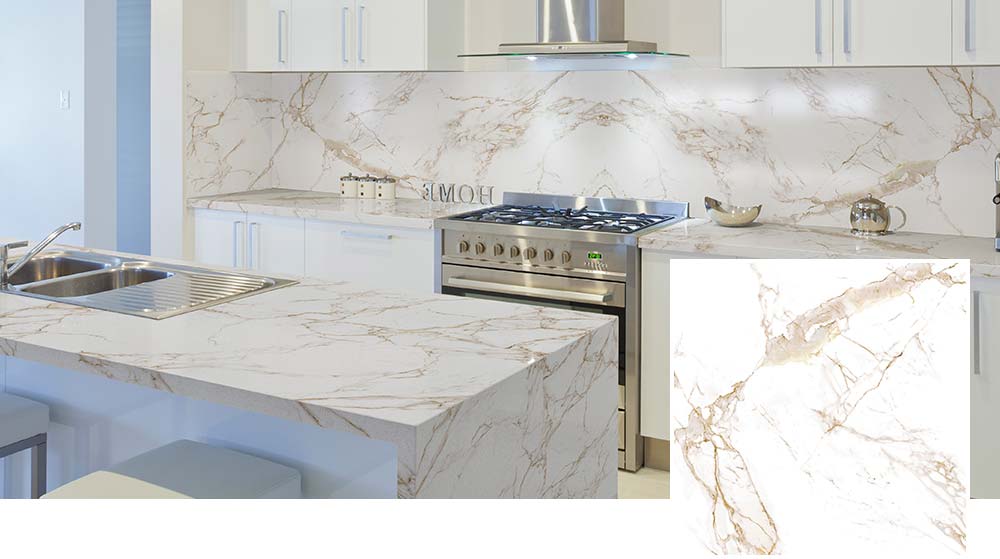
Can Dekton countertops be repaired?
Damaged Dekton countertops could be repaired. It also varies in nature and extent of the damage. Repairs on Dekton may still exist or be incomplete.
Dekton Kitchen Countertops Styles?
There are many Dekton kitchen counters to choose from, so how do you know which one is right for you?
Factors to consider when making your decision:
- How will the countertop be used?
- Do you need a heat-resistant surface?
- Are you looking for a natural or man-made material?
- Do you want a solid surface or one with a pattern?
- What is your budget?
After you’ve evaluated all these factors, you’ll be able to narrow down your choices and find the perfect countertop material for your kitchen.
Dekton countertops also come with decorative beveled edges or half bullnose edges. The difference between these two types of edges is the amount of material removed from the countertop.
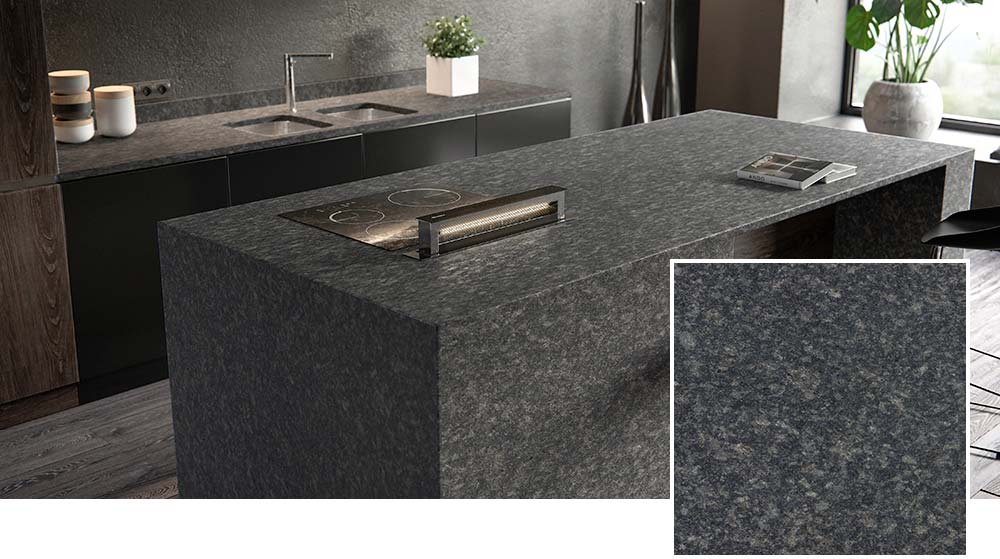
A half bullnose edge removes half of the material from the edge of the countertop, while a decorative beveled edge only removes a small amount.
These edge styles can add a touch of class to your kitchen and are a great way to personalize your space.
When selecting a countertop material, it’s vital to consider how the countertop will be used. If you do a lot of cooking, you’ll want a heat-resistant surface that won’t crack or stain.
If you’re looking for a natural material, granite or marble are great choices.
Quartz is a good option if you want a solid surface with a pattern.
You can narrow down your selections, and discover the appropriate countertop material for your kitchen once you’ve considered all of these elements.
Benefits of Dekton Counters
What makes Dekton better than other countertop material options? Dekton counters are highly resistant to heat damage, the surface finish is very hard, and it’s a non-porous material. This means Dekton is less likely to stain, etch or scratch than different materials like granite or marble.
Kitchen countertops must withstand harsh treatment, and Dekton is up for the challenge.
Dekton is also an excellent choice for outdoor kitchens because it’s UV resistant and can withstand extreme temperature changes without damage.
If you’re looking for a durable countertop, low maintenance, and a variety of style options, Dekton is a perfect choice.
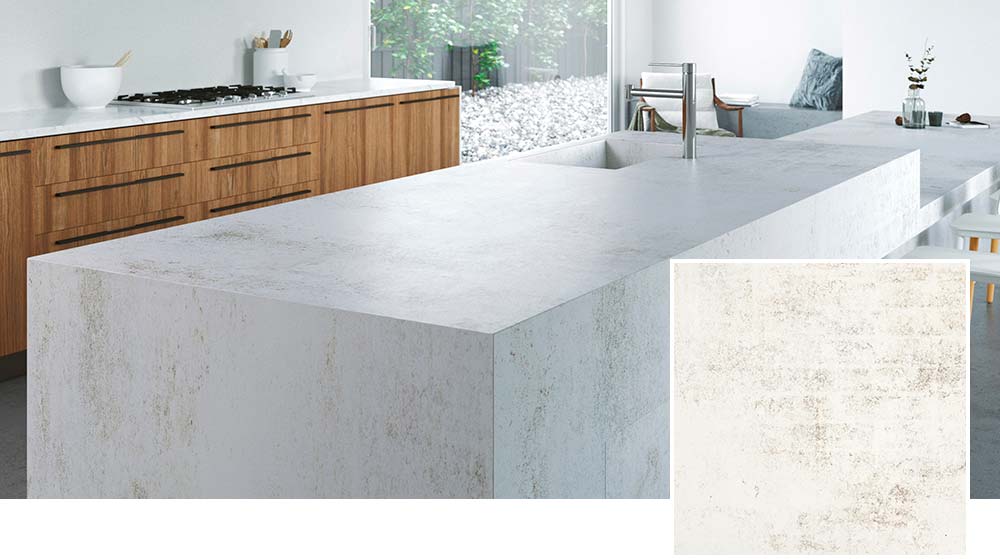
You can find many options when it comes to surface finish. Dekton calls these “textures.” To reduce the chance of chipping, Dekton recommends beveled edges. Patterned surfaces are also great for hiding scratches or fingerprints.
Dekton countertops are available in various colors and styles, so you’re sure to find the perfect match for your kitchen.
When it comes to style, Dekton has you covered. From classic to contemporary, or even a white marble look, there’s a Dekton kitchen counter that will fit your style.
Using Dekton for exterior and flooring
Dekton can be used for flooring and exterior applications, such as building facades. The product is highly durable, UV resistant, and can withstand extreme temperature changes without damage.
Dekton is fireproof
The Dektons are fire-resistant, says Cosentino, a Dektons’ manufacturing company. There won’t be any danger of harming your skin while cooking your Crème Brulee and searing the scallops even though you are in the kitchen.
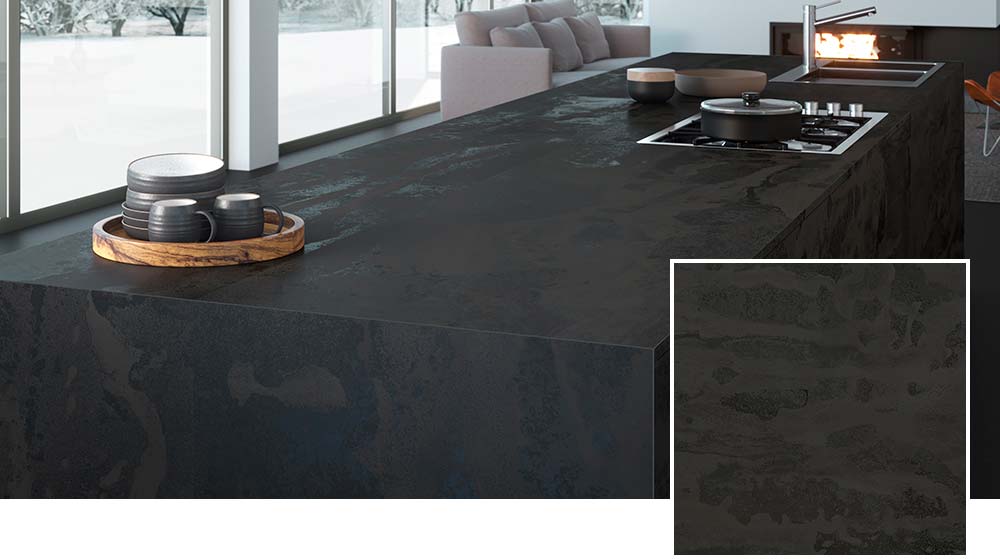
It allows people to place pots of boiling water on the Dekton kitchen countertops without fear of thermal shock. That’ll never happen to laminated or solid-surface counters.
Using both heat and high pressure to combine disparate materials gives Dekton countertops its highly resistant surface.
Dekton is chip, crack, and scratch-resistant
Dekton kitchen countertops are highly resistant to chipping, cracking, and scratching. You can place hot pots and pans on the countertop without fear of damage.
Dekton is also a non-porous material, so it’s less likely to stain, etch, or scratch than other materials like granite or marble.
Dekton countertops are excellent at resisting abrasion, making them ideal for high-traffic areas like kitchens and bathrooms.
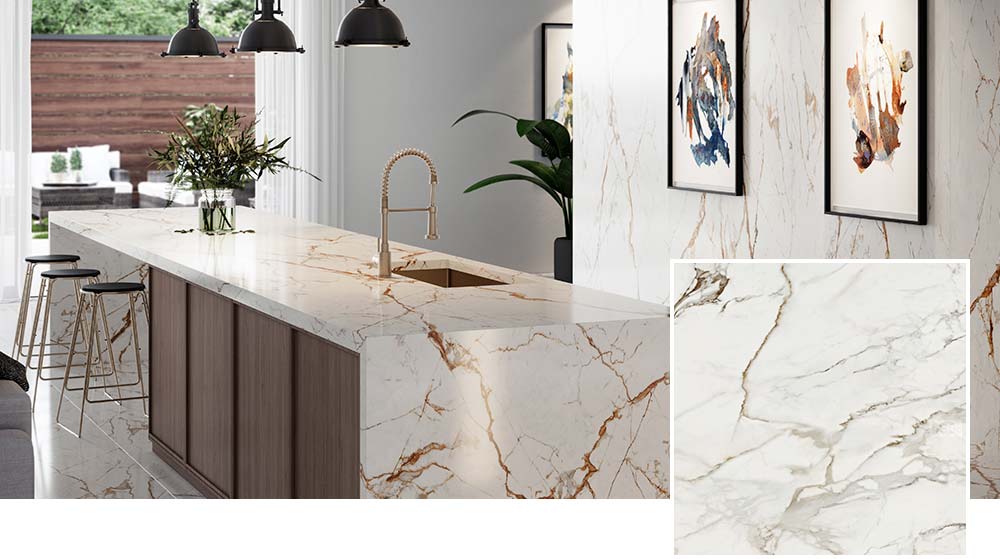
Dekton Kitchen Countertops
Dekton is known as a durable, elegant, and inexpensive countertop material. Dektone kitchen countertops have been widely used as alternatives to traditional kitchen surfaces since they have gained popularity.
Dektron was created by Consentino, a Spanish company that specializes mainly in Silestone Quartz countertops. Dekton is a product designed to enhance the performance of quartz surfaces! Dekton countertops can be manufactured using porcelain, glass, and Quartz and are offered in various color combinations, design patterns, and finishes in multiple styles.
Dekton kitchen counters are available at four, eight, 12, 20, and 30-millimeter thicknesses.
When it comes to countertops, Dekton is an excellent choice for its beauty, durability, and resistance to heat and scratches.
Quartz Kitchen Countertop VS. Granite Kitchen Countertop
Granite is 100 percent natural. After being mined from different parts of the world, it is cut down to a more manageable size before receiving a fine polish.
Because of the way Granite is constructed, it’s available in different patterns and colors. Granite countertop is unique as no two are alike.
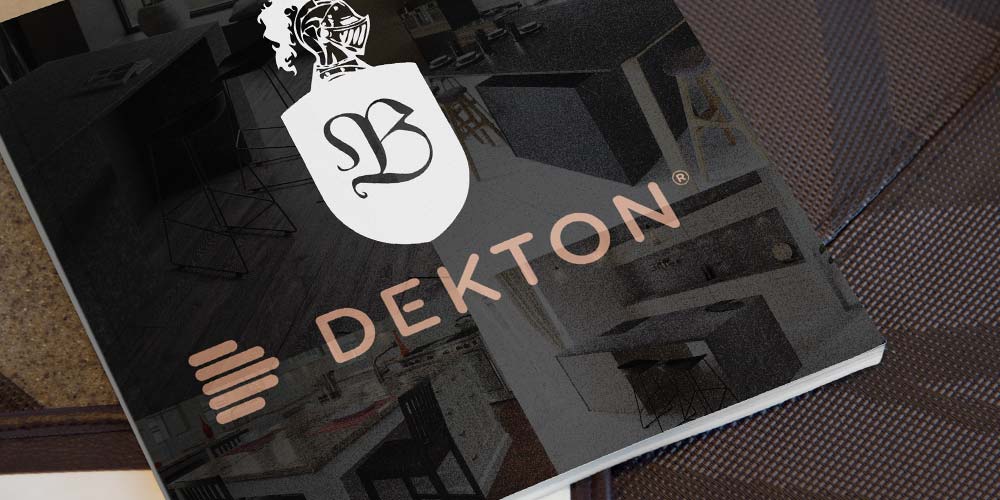
Though other factors are at play, the most common reason people choose quartz countertops is their appearance. It’s customizable and has the look of stone. Quartz can mimic the look of granite, marble, and other more expensive materials but at a fraction of the cost.
Quartz is also non-absorbent, making it resistant to stains and bacteria. It’s an excellent choice for kitchen countertops as it doesn’t require sealing as granite does.
In conclusion
Choosing the appropriate counter for your kitchen is crucial. We’ve learned that the materials used in creating a counter are just as important as the appearance and design.
The materials used for a counter must be extremely durable as they will be one of the most often used in your home.
Source and Official Website Of Dekton USA

